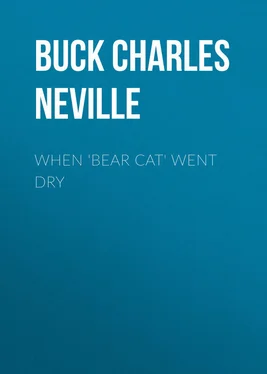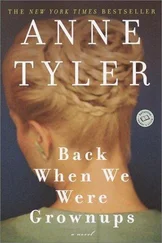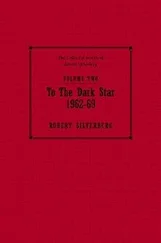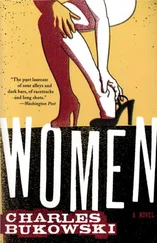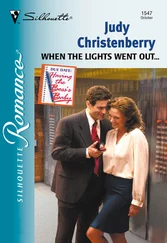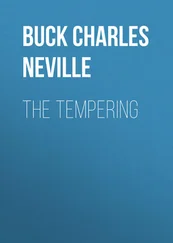Charles Buck - When 'Bear Cat' Went Dry
Здесь есть возможность читать онлайн «Charles Buck - When 'Bear Cat' Went Dry» — ознакомительный отрывок электронной книги совершенно бесплатно, а после прочтения отрывка купить полную версию. В некоторых случаях можно слушать аудио, скачать через торрент в формате fb2 и присутствует краткое содержание. ISBN: , Издательство: Иностранный паблик, Жанр: foreign_language, foreign_antique, foreign_prose, на английском языке. Описание произведения, (предисловие) а так же отзывы посетителей доступны на портале библиотеки ЛибКат.
- Название:When 'Bear Cat' Went Dry
- Автор:
- Издательство:Иностранный паблик
- Жанр:
- Год:неизвестен
- ISBN:http://www.gutenberg.org/ebooks/34057
- Рейтинг книги:5 / 5. Голосов: 1
-
Избранное:Добавить в избранное
- Отзывы:
-
Ваша оценка:
- 100
- 1
- 2
- 3
- 4
- 5
When 'Bear Cat' Went Dry: краткое содержание, описание и аннотация
Предлагаем к чтению аннотацию, описание, краткое содержание или предисловие (зависит от того, что написал сам автор книги «When 'Bear Cat' Went Dry»). Если вы не нашли необходимую информацию о книге — напишите в комментариях, мы постараемся отыскать её.
When 'Bear Cat' Went Dry — читать онлайн ознакомительный отрывок
Ниже представлен текст книги, разбитый по страницам. Система сохранения места последней прочитанной страницы, позволяет с удобством читать онлайн бесплатно книгу «When 'Bear Cat' Went Dry», без необходимости каждый раз заново искать на чём Вы остановились. Поставьте закладку, и сможете в любой момент перейти на страницу, на которой закончили чтение.
Интервал:
Закладка:
"So ye thinks thet even without no railroad this God-forsaken land kin still prosper somehow?" inquired the host skeptically, and the visitor answered promptly:
"I do. I am so convinced of it that I'm here to buy property – to invest all I have and all my mother and sisters have. I think that by introducing modern methods of intensive farming, I can make it pay a fair return in my own time – and when I die I'll leave property that will ultimately enrich the younger generations. I don't think it can make me rich in my lifetime – but some day it's a certainty of millions."
"Why don't ye buy yoreself property whar ther railroad will come in yore own day, then? Wouldn't thet pay ye better?"
The suggestion was the first contribution to the conversation that had come from Kinnard Towers, and it was proffered in a voice almost urbane of tone.
Henderson turned toward him.
"That's a straight question and I'll answer it straight. To buy as much property as I want along a possible railway line would cost too much money. I'm gambling, not on the present but on the future. I come here because I know the railroad is not coming and for that reason prices will be moderate."
As he made this explanation the newcomer was watching the face of his questioner almost eagerly. What he read there might spell the success or failure of his plans. Any enterprise across which Kinnard Towers stamped the word "prohibited" was an enterprise doomed to great vicissitude in a land where his word was often above the law.
But the blond and florid man granted him the satisfaction of no reply. He gazed pensively at the logs crackling on the hearth and his features were as inscrutably blank as those of the Sphinx.
After a moment Towers did speak, but it was to his host and on another topic.
"Lone," he said, "thet firewood of yourn's right green an' sappy, hain't it? Hit pops like ther fo'th of July."
Brother Fulkerson spoke reflectively: "We needs two more things then we've got in these hills – an' one thing less then we've got. We wants roads an' schools – and the end of makin' white licker."
Henderson saw Blossom slip from the bed and flit shadow-like through the door, and a few moments later he missed, too, the eagerly attentive presence of the boy. Blossom had escaped from the reek of tobacco smoke inside, to the soft cadences of the night-song and the silver wash of the moonlight.
Turner Stacy found her sitting, with her face between her palms, under a great oak that leaned out across the trickle of the creek, and when he spoke her name, she raised eyes glistening with tears.
"Blossom," he began in a contrite voice, "ye're mad at me, ain't ye? Ye've done heerd about – about last night." Then he added with moody self-accusation, "God knows I don't blame ye none."
She turned her head away and did not at once answer. Suddenly her throat choked and she broke into sobs that shook her with their violence. The young man stood rigid, his face drawn with self-hatred and at last she looked up at him.
"Somehow, Turner," she said unsteadily, "hit wouldn't of been jest ther same ef hit had been any other time. Yestiddy – up thar on ther ridge – ye promised me thet ye'd be heedful with licker."
"I knows I did," he declared bitterly. "Ye've got a right ter plumb hate me."
"Ef I'd a-hated ye," she reminded him simply, "I wouldn't sca'cely have watched ther road all day." Then irrelevantly she demanded, "How did ye git yore shoulder hurt?"
The wish to defend himself with the palliations of last night's desperate fatigue and the chill in his wound was a strong temptation, but he repressed it. Knowledge of his encounter with Ratler Webb would only alarm her and conjure up fears of unforgiving vengeance.
"Hit war just a gun thet went off accidental-like," he prevaricated. "I wasn't harmed none, Blossom." Then in a tense voice he continued: "I only aimed ter drink a leetle – not too much – an' then somehow I didn't seem ter hev ther power ter quit."
He felt the lameness of that plea and broke off.
"I'd been studyin' about what you said on ther ridge," she told him falteringly, and the tremor of her voice electrified him. Again the mountains on their ancient foundations grew unsteady before his eyes.
"Does ye mean thet – thet despite last night – ye keers fer me?"
He bent forward, lips parted and heart pounding – and her reply was an unsteady whisper.
"I hain't plumb dead sartain yit, Turner, but – but this mornin' I couldn't think of nothin' else but you."
"Blossom!" exclaimed the boy, his voice ringing with a solemn earnestness. "I don't want thet ye shall hev ter feel shame fer me – but – "
Once again the words refused to come. The girl had risen now and stood slender in the silver light, her lashes wet with tears. With that picture in his eyes it became impossible to balance the other problems of his life. So he straightened himself stiffly and turned his gaze away from her. He was seeing instead a picture of the squat shanty where the copper worm was at work in the shadow, and for him it was a picture of bondage.
So she waited, feeling some hint of realization for the struggle his eyes mirrored.
There would be many other wet nights up there, he reflected as his jaw set itself grimly; many nights of chilled and aching bones with that wild thirst creeping seductively, everpoweringly upon him out of the darkness. There would be the clutch of longing, strangling his heart and gnawing at his stomach.
But if he did promise and failed, he could never again recover his self-respect. He would be doomed. With his face still averted, he spoke huskily and laboriously.
"I reckon thar hain't no way ter make ye understand, Blossom. I don't drink like some folks, jest ter carouse. I don't oftentimes want ter tech hit, but seems like sometimes I jest has ter hev hit. Hit's most gin'rally when I'm plumb sick of livin' on hyar withouten no chance ter better myself."
Even in the moonlight she could see that his face was drawn and pallid. Then abruptly he wheeled:
"Ther Stacys always keeps thar bonds. I reckons ye wants me ter give ye my hand thet I won't never tech another drop, Blossom, but I kain't do thet yit – I've got ter fight hit out fust an' be plumb dead sartain thet I could keep my word ef I pledged hit – "
Blossom heard her father calling her from the porch and as she seized the boy's arms she found them set as hard as rawhide.
"I understands, Turney," she declared hastily, "an' – an' – I'm a-goin' ter be prayin' fer ye afore I lays down ternight!"
As Turner watched the preacher mount and ride away, his daughter walking alongside, he did not return to the house. He meant to fight it out in his own way. Last night when the hills had rocked to the fury of the storm – he had surrendered. To-night when the moonlit slopes drowsed in the quiet of silver mists, the storm was in himself. Within a few feet of the gate he took his seat at the edge of a thick rhododendron bush, where the shadow blotted him into total invisibility. He sat there drawn of face and his hands clenched and unclenched themselves. He did not know it, but, in his silence and darkness, he was growing. There was for him a touch of Golgotha in those long moments of reflection and something of that anguished concentration which one sees in Rodin's figure of "The Thinker" – that bronze man bent in the melancholy travail of the birth of thought.
When an hour later Kinnard Towers and his cortège trooped out of Lone Stacy's house, Jerry Henderson, willing to breathe the freshness of the night, strolled along.
The men with the rifles swung to their saddles and rode a few rods away, but Towers himself lingered and at last with a steady gaze upon the stranger he made a tentative suggestion.
Читать дальшеИнтервал:
Закладка:
Похожие книги на «When 'Bear Cat' Went Dry»
Представляем Вашему вниманию похожие книги на «When 'Bear Cat' Went Dry» списком для выбора. Мы отобрали схожую по названию и смыслу литературу в надежде предоставить читателям больше вариантов отыскать новые, интересные, ещё непрочитанные произведения.
Обсуждение, отзывы о книге «When 'Bear Cat' Went Dry» и просто собственные мнения читателей. Оставьте ваши комментарии, напишите, что Вы думаете о произведении, его смысле или главных героях. Укажите что конкретно понравилось, а что нет, и почему Вы так считаете.
